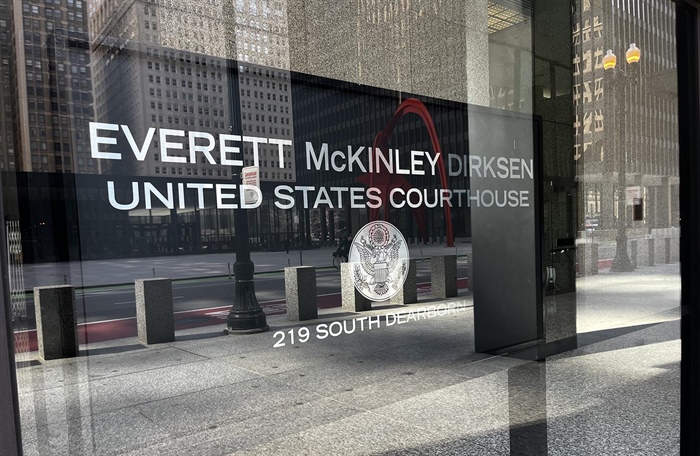Feds allege AT&T boss bribed Madigan with contract for political ally Eddie Acevedo
CHICAGO – On an afternoon in late April 2017, recently retired state Rep. Eddie Acevedo was called to a meeting in the state Capitol in Springfield.
The 20-year veteran lawmaker had joined his sons’ lobbying firm and was looking for work. Meeting with a trio of lobbyists for telecommunications giant AT&T Illinois was a major step forward in Acevedo’s new lobbying career.
But Acevedo grew agitated when the lobbyists offered him $2,500 per month, raising his voice to express that he was worth more, according to testimony Friday in the federal bribery trial of former AT&T Illinois president Paul La Schiazza.
Retired AT&T lobbyist Steve Selcke, who was testifying under immunity from the feds, recalled that he’d tried to calm Acevedo by suggesting he “sleep on it.”
“I recall his response being, ‘no I’m not interested, I’m not gonna do it at that amount,’” Selcke said. “Then the meeting ended.”
Top AT&T contract lobbyist Tom Cullen remembered the same on the witness stand Friday and described a phone call with Acevedo shortly after the meeting ended.
“F— AT&T, they can kiss my ass,” Cullen recalled Acevedo telling him. “I believe he said something like, “I’m looking for $5,000 a month.”
But just a few days later, Acevedo changed his tune and began collecting monthly checks for the rest of 2017, totaling $22,500. But prosecutors allege Acevedo never did any work for the money, and they claim AT&T intentionally hid those payments to Acevedo in a longstanding contract with Cullen – all in service of bribing powerful Illinois House Speaker Michael Madigan.
In exchange, the feds say, AT&T finally won its prized legislation that paved the way to ending its expensive obligation to maintain its aging landline system so it could instead invest more in cellular and internet service. Attorneys for La Schiazza maintain the company won its legislative battle after years of hard work on a sophisticated lobbying strategy – none of which hinged on granting a small contract to Acevedo.
During his two decades in the General Assembly, Acevedo had risen through the ranks and became a top deputy for Madigan, in addition to leading the House’s Latino Caucus – a constituency the speaker was keenly interested in as his political power base on Chicago’s southwest side grew increasingly Latino over the years.
Cullen, who’d himself been a top Madigan staffer for years until becoming a lobbyist, described Acevedo as “very loyal” to the speaker. But as for how Madigan would describe Acevedo, Cullen testified:
“That he was a loyal member but not, you know, a serious member.”
And even though Cullen viewed Acevedo in much the same way, describing him as someone who “liked to go out and party and drink a lot” in Springfield, he agreed to be the conduit for AT&T’s payments to Acevedo in order to “be a team player” for his longtime client.
Cullen testified that Acevedo was officially labeled a “consultant” instead of a lobbyist in order to avoid having to fill out required lobbying disclosures with the state, and that he cut Acevedo a check each month until the end of the year using the boosted monthly stipend he received from AT&T. But, he said, Acevedo was not renewed as a contractor for 2018.
During the April 2017 meeting with Acevedo – before the retired lawmaker balked at the financial offer – Cullen listened as Selcke and his fellow AT&T in-house lobbyist Robert Barry described the project for which they wanted to retain Acevedo. He was to compile a report on the political dynamics within the Latino Caucuses in both the General Assembly and Chicago City Council.
But prosecutors claim that was just a cover story for the do-nothing contract meant to benefit Madigan’s ally – thus benefitting AT&T in return.
Under questioning from Assistant U.S. Attorney Paul Mower on Friday, Cullen bolstered the feds’ accusation, responding “no” when asked if $22,500 was what he would expect to pay for a report like the one assigned to Acevedo, and confirming that it should probably not take nine months to write such a report.
Cullen’s testimony will continue on Monday when the trial resumes at 9 a.m.

